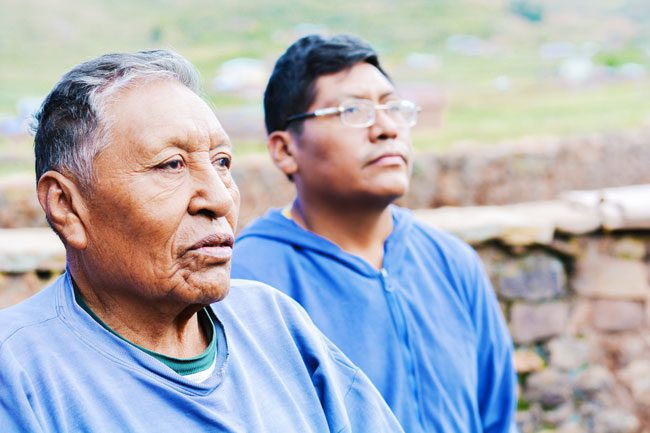There has long been a stereotype that Native Americans are more prone to alcoholism and deaths related to alcohol than other Americans. Though many Native American communities around the United States do battle the negative impacts of alcohol, there is far more to know than stereotypes convey.
Stats Versus Stereotypes
As reported in the Journal of Alcohol Dependence, using a national sample, the percentage of Native Americans who abstain completely from alcohol (nearly 60 percent) is far higher than the percentage of white Americans who abstain (around 43 percent).
When it comes to light or moderate drinking, Native Americans once again fair better than white Americans. Less than 15 percent of Native Americans reported this level of drinking, while about 33 percent of white Americans reported this level of consumption.
When researchers looked at binge drinking and heavy drinking, the numbers were exceedingly close for the two groups. They were within a percentage point of each other, about 17 percent for binge drinking and 8 percent for heavy drinking.
Overall, the study found Native Americans were no more likely engage in problematic behaviors related to alcohol than were their white counterparts.
Conflicting Numbers
Statistics tell us that Native Americans are not more likely to consume large amounts of alcohol, but they are more likely to die from alcohol-related causes. From 2001 to 2005, alcohol-attributed deaths accounted for 11.7 percent of all Native American deaths, more than twice the rates of the general U.S. population, according to the Centers for Disease Control (CDC). The CDC also reports that Native Americans are over-represented in national estimates of alcohol-related motor vehicle deaths and alcohol-involved suicides.
Understanding the Bigger Picture
Dr. Phillip A. May, a professor at the University of North Carolina, Gillings School of Global Public Health with expertise in alcoholism, was quoted by PacificStandard Magazine as saying there are three explanations for alcohol abuse in the Native American community.
- Demographic, social, and political differences experienced by American Indians contribute to alcohol-related problems. The American Indian population is relatively young, and younger populations tend to have much higher rates of alcohol-related death. Low socioeconomic status also increases alcohol-related problems.
- American Indian drinking styles tend to be more flamboyant, characterized by abusive drinking (such as binge drinking) and high blood alcohol levels.
- The mixing of alcohol impairment with risky behaviors and risky environments further contributes to higher mortality rates. Most Indian people still live in rural Western states where higher death rates are expected due to higher-risk environments, greater distances from care facilities, and lack of availability of services.
The Substance Abuse and Mental Health Services Administration (SAMHSA) echoes this for all minority populations, saying, “Communities of color tend to experience greater burden of mental and substance use disorders often due to poorer access to care; inappropriate care; and higher social, environmental, and economic risk factors.”
It is also important to recognize that “Native Americans” are not one single group of individuals. There are many communities of Native Americans, spread across the United States. There is diversity among their traditions as a whole, as well as their views on and interactions with alcohol. Attempting to generalize such a broad and varied group will always lead to mischaracterizations of certain subgroups.
Risks for Alcoholism
Native Americans have long been portrayed as having a lower tolerance for alcohol or a greater risk for addiction than other individuals. While this has been shown to be untrue, according to the Mayo Clinic there are risk factors for alcohol addiction that will increase the chances of anyone becoming dependent on alcohol:
- Steady drinking over time. Drinking too much on a regular basis for an extended period or binge drinking on a regular basis can lead to alcohol-related problems.
- Starting at an early age. People who begin drinking at an early age are at higher risk.
- Family history. The risk of alcohol use disorder is higher for people who have a parent or other close relative who has problems with alcohol. This may be influenced by genetic factors.
- Depression and other mental health problems. It’s common for people with a mental health disorder such as anxiety, depression, schizophrenia or bipolar disorder to have problems with alcohol or other substances. SAMHSA reports “In 2014, 8.8 percent of American Indians and Alaska Natives ages 18 and up had co-occurring, past-year mental and substance use disorders, while the national average was 3.3 percent”.
- History of trauma. People with a history of emotional or other trauma are at increased risk of alcohol use disorder. It is widely known that the American government has inflicted huge amounts of trauma onto the Native populations of this country. Little has been done to assist those populations in recovering from the long-term impact of these traumas. Thanks to the Adverse Childhood Experiences (ACEs) study, experts have realized that childhood trauma is especially linked to addiction, even more closely than obesity is linked to diabetes.
- Social and cultural factors. Having friends or a close partner who drinks regularly could increase the risk of alcohol use disorder.
Successfully Treating Alcoholism in Native Populations
One of the key components in treating any form of addiction is to be culturally competent and to treat each person in recovery as an individual. Unfortunately, these sorts of services have not always been available to individuals within Native American communities.
The Indian Health Service aims to do more in this regard, through the Alcohol and Substance Abuse Program (ASAP). According to the ASAP webpage, “ASAP nurtures excellence in holistic approaches that promote healthy lifestyles, families, and communities. Programs address alcohol and substance abuse by improving access to behavioral health services through telebehavioral health methods, and by providing a comprehensive array of preventative, educational and treatment services.”
At Fair Oaks Recovery Center, we take also take an individualized approach to substance abuse treatment and are eager to support the recovery of all people in a culturally sensitive and respectful manner.
For more information about programs offered at Fair Oaks Recovery Center, California outpatient alcohol rehab, please call us today at (888) 576-0222.


